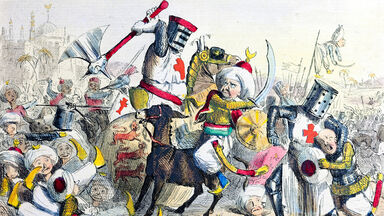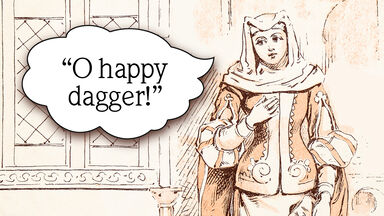That the Pilgrims' Progress should thus have turned into a Holy War is a fact readily explicable, when we turn to consider the attempts made by the Church, during the 11th century, to purify, or at any rate to direct, the feudal instinct for private war (Fehde).
On the one hand, the reconquest of lost territories from the Mahommedans by Christian powers had been proceeding steadily for more than a hundred years before the First Crusade; on the other hand, the position of the Eastern empire after 1071 was a clear and definite summons to the Christian West, and proved, in the event, the immediate occasion of the holy war.
The primary force, which thus transmuted an appeal for reinforcements into a holy war for the conquest of Palestine, was the Church.
The Chanson de Roland, which cannot be posterior to the First Crusade - for the poem never alludes to it - already contains the idea of the Holy War against Islam.
It might seem natural that the Holy City, conquered in a holy war by an army of which the pope had made a churchman, Bishop Adhemar, the leader, should be left to the government of the Church.





